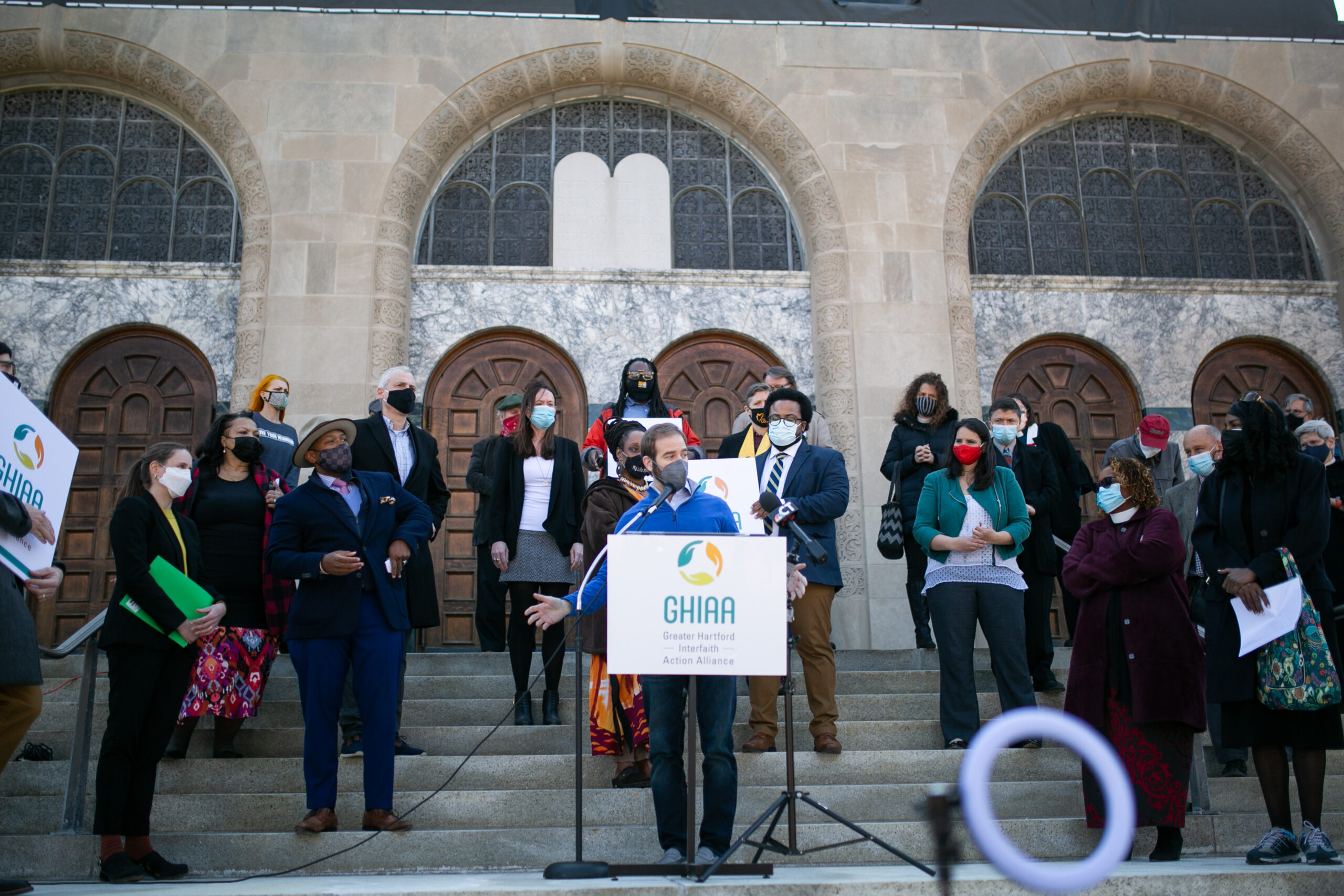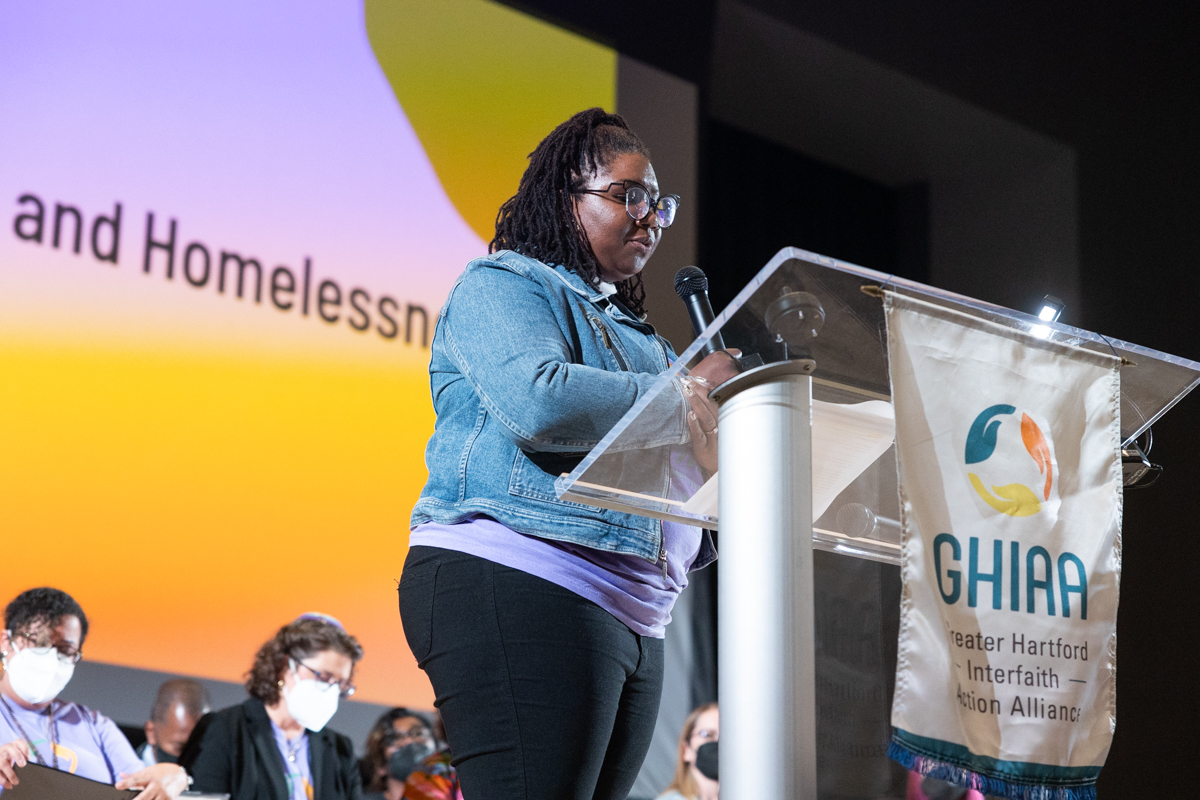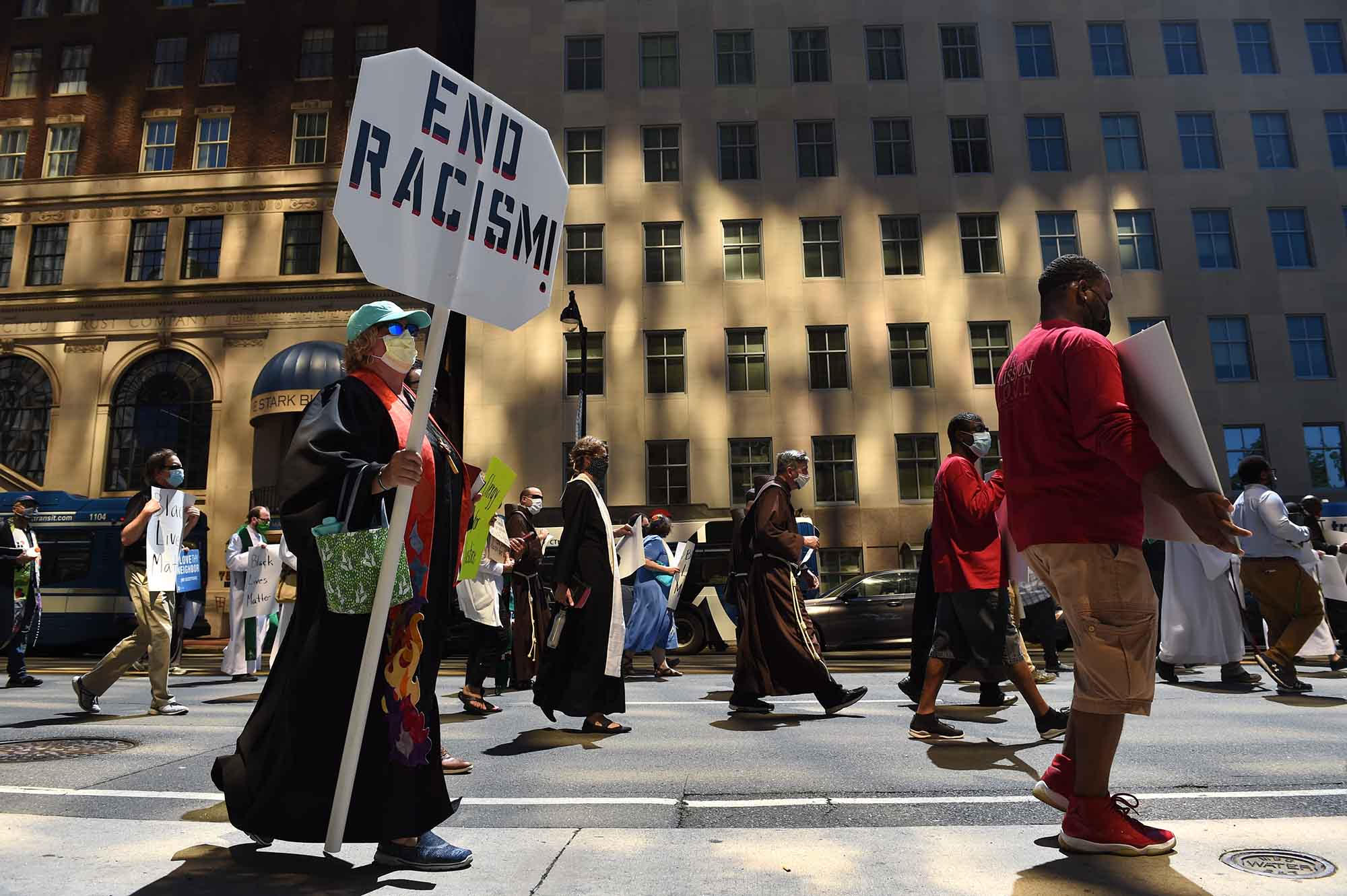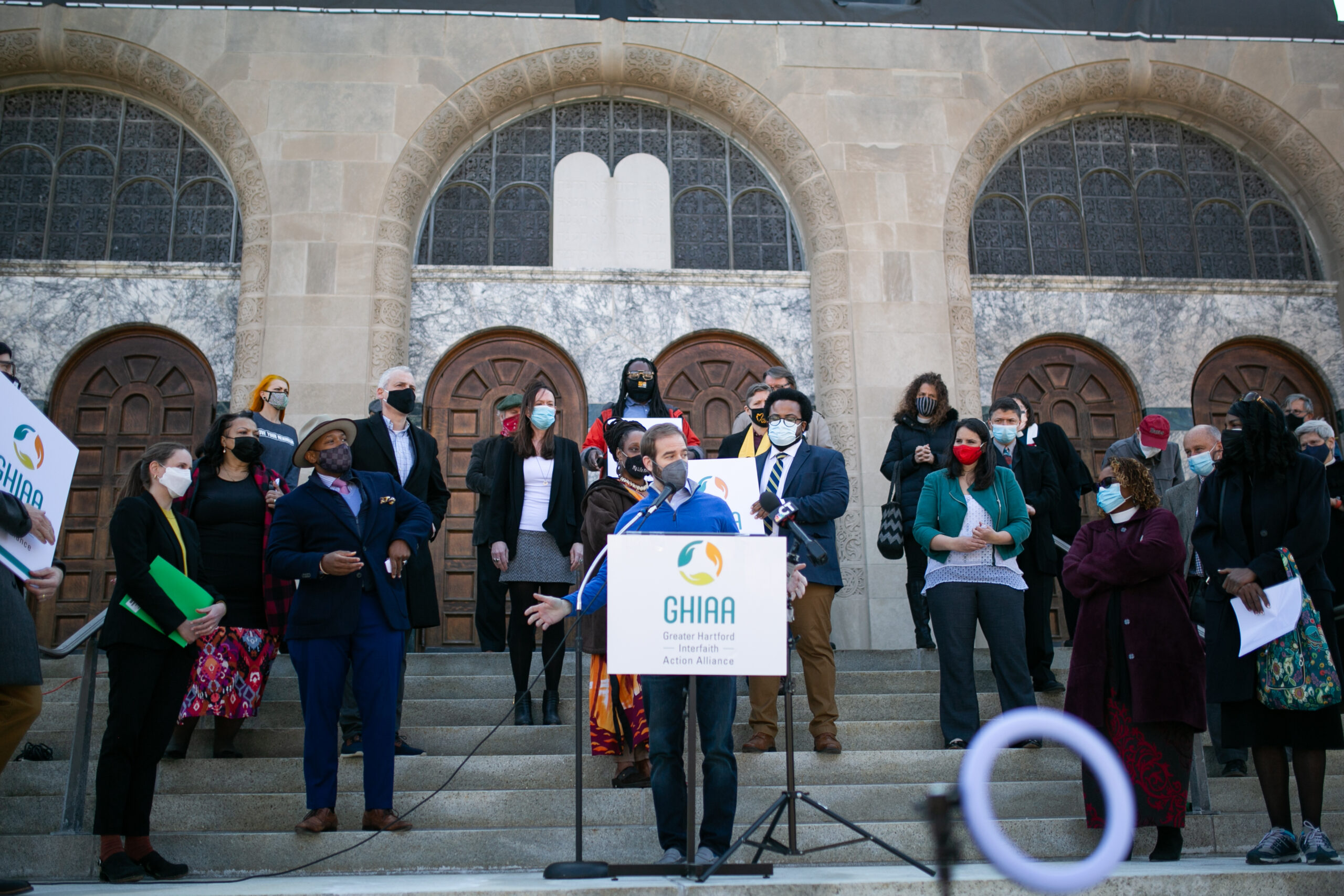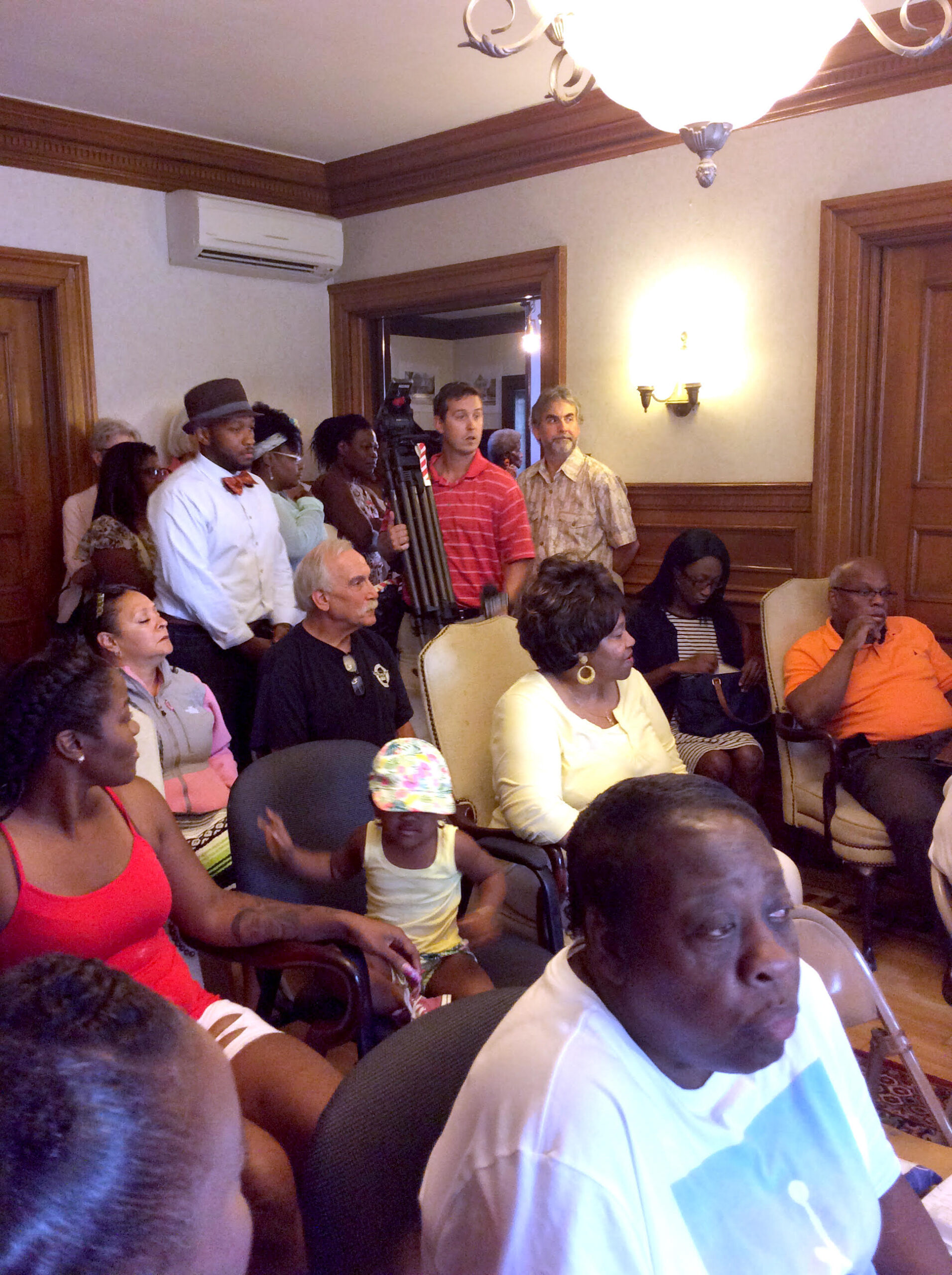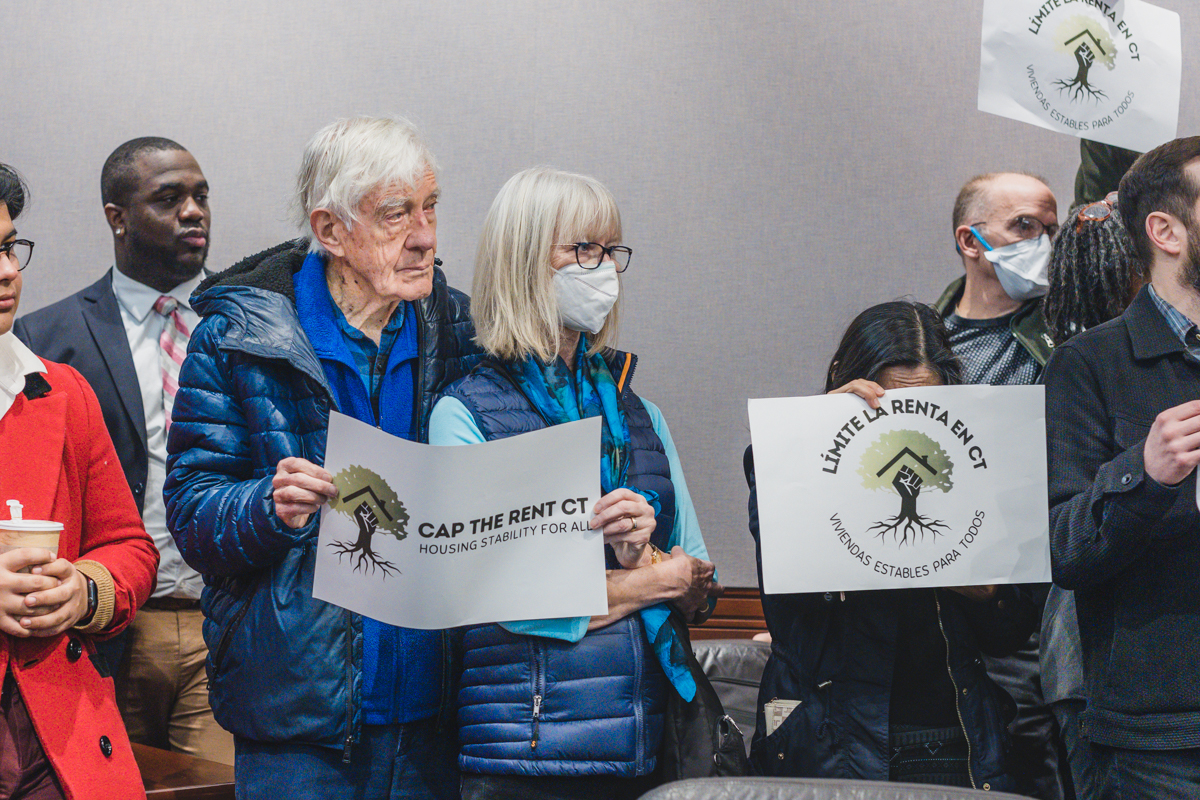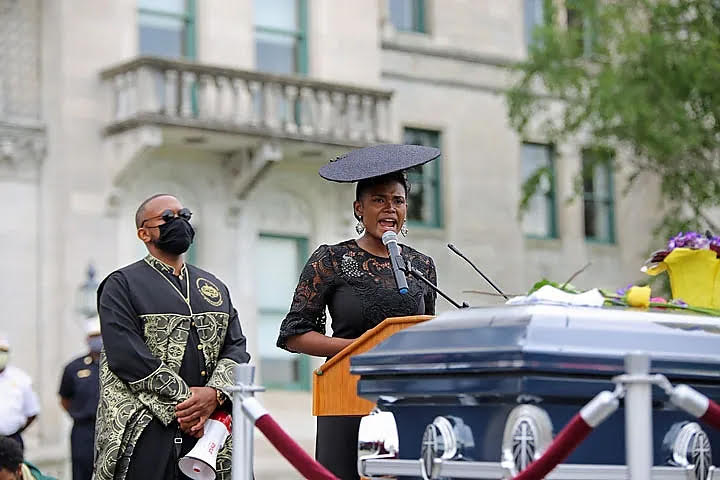Since GHIAA’s founding, issues of housing affordability and access have been a key priority. Every resident deserves the right to appropriate, affordable, dignified housing in a community of their choice. But our state lacks over 130,000 units of affordable housing, and our levels of racial segregation are extremely high. Our work to address this issue has taken many forms.
Rent Caps


In 2023, GHIAA worked alongside the Cap the Rent coalition to fight for legislation that would place a reasonable limit on annual rent increases, giving tenants the same stability that homeowners with fixed-rate mortgages have. In spite of hundreds of compelling testimonies from renters whose lives had been upended by sudden extreme rent increases, the Housing Committee leadership refused to bring the bill to a vote, and it died in committee.
Zoning Reform

Regional Response to Homelessness



Welfare Liens
